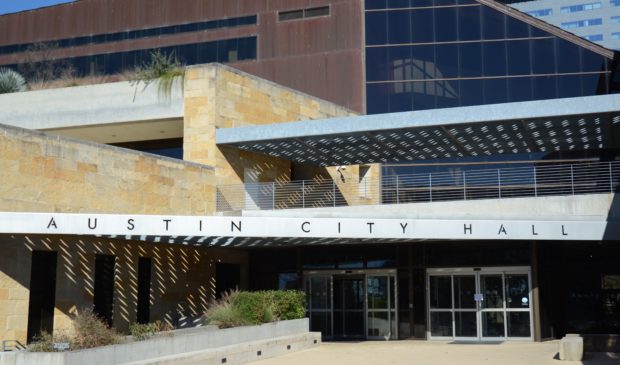Ethics commission may seek ‘more teeth’ in code to curb violations
Tuesday, September 17, 2019 by
Chad Swiatecki The city’s Ethics Review Commission may ask City Council to increase the penalties it can levy for violations of city code and to add more teeth to the city’s laws concerning campaign finance.
The commission voted 8-0 at last week’s meeting, with Raafia Lari abstaining, to form two working groups that will examine how the body operates and discuss what changes might be needed to help prevent violations of the city’s ethics code. One group will deal with the sanctions the commission can impose and amendments to the city’s campaign finance rules. Another will look at the commission’s procedures, scope of work and possible amendments to its rules for handling cases that can be brought by the city auditor’s office or private citizens.
The overview and push for change came as a result of members’ concerns that letters of sanction and $500 fines for campaign finance violations aren’t severe enough to deter bad behavior.
Commissioner Kenneth Gober proposed fines that could accrue daily after violations are discovered or a standard of three times the total amount given improperly, while Commissioner Luis Soberon added that his research into other Texas cities revealed an ability to levy fines of up to $10,000.
Commissioner Debra Danburg said even the ability to refer a case to a municipal judge, which no current member could recall taking place, has a limited impact.
“If we refer to prosecution we refer to a municipal judge, with limited jurisdiction,” she said. “If somebody is just going to say, OK, I’m going to give $10,000, keep it secret, add the $500 fine, add the $500-a-day fine for the days during early voting or whatever, and we find that it’s the most heinous of things, then we refer it to a municipal court whose jurisdiction is limited.”
Danburg added that the Supreme Court’s ruling in the Citizens United case that equates money with speech is a hindrance to imposing ethics rules on campaign finance. Another difficulty is the tendency of political action committees funded by well-connected power brokers to have an unknowing citizen as a proxy head of the organization, with that person in the line of prosecutorial fire for any violations committed by the PAC.
Commissioners may also ask for the ability to recommend performance review plans for city offices when negligence of ethics rules leads to violations, as many felt was the case with former employee Frank Rodriguez in Mayor Steve Adler’s office.
Lari said that Rodriguez’s case resulted in outside contractors spending thousands of dollars to investigate his case, which was adjudicated by the commission this summer.
“There is a culture of noncompliance and non-transparency in a lot of these pockets we are getting into,” she said. “We get specific individuals in front of us and we might not feel like their conduct rises to the level that’s actionable, but what’s frustrating is we see that behind that is, at best, negligence. That negligence is costing the taxpayers a lot of money.”
Commissioner Robin Lerner, who in June voted against the commission’s finding that Rodriguez violated ethics rules, said pushing for action plans based on the commission’s larger findings would help curb improper behavior.
“What those cases show is almost a corrective action plan, and it’s almost necessary to strengthen everyone involved in city work. In the Frank Rodriguez case, some of the discussion there was whether he knew what he was doing was right or wrong. Even if he didn’t know it was wrong, there’s something wrong with not knowing it was wrong,” said Lerner.
While the commission no longer has the authority to consider cases against lower-level city employees after a recent rule change, members said they may opt to decline to hear cases brought against former employees for seemingly minor violations such as improper use of a city laptop. Far more concern should be given, many said, to campaign finance violations.
Photo by John Flynn.
The Austin Monitor’s work is made possible by donations from the community. Though our reporting covers donors from time to time, we are careful to keep business and editorial efforts separate while maintaining transparency. A complete list of donors is available here, and our code of ethics is explained here.
You're a community leader
And we’re honored you look to us for serious, in-depth news. You know a strong community needs local and dedicated watchdog reporting. We’re here for you and that won’t change. Now will you take the powerful next step and support our nonprofit news organization?



